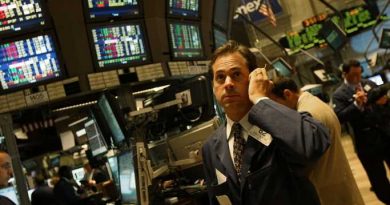Chobani looks to shepherd its yogurt to an IPO
Chobani founder: You don’t need a plan
When Hamdi Ulukaya came to the U.S., the last thing he expected to do was launch America’s obsession with Greek yogurt. He shares his Chobani success story.
Chobani LLC, the food company that made Greek yogurt mainstream, is laying the groundwork for a public listing of its shares.
Continue Reading Below
Chobani is eyeing an initial public offering later this year that it hopes could value the Norwich, N.Y., company at as much as $7 billion to $10 billion, according to people familiar with the matter.
The 16-year-old company has been expanding into faster-growing segments such as refrigerated coffees, creamer and oat milk, and an infusion of cash from an IPO could give that effort a boost. It recently hired new executives including Chief Financial Officer Jody Macedonio and Chief Corporate Affairs Officer Cristina Alesci.
CHOBANI TO BOOST MINIMUM WAGE TO $15 PER HOUR
"As we create the food company of the future, we'll look at all options carefully to fuel our ambitious plans, especially with oatmilk and plant-based products," Chobani founder Hamdi Ulukaya said in a statement. "An IPO is definitely one exciting direction but whether or not we're public, we'll keep disrupting and making things better."
The IPO market has been on a tear, with high-profile debuts of companies including Airbnb Inc. and DoorDash Inc. late last year, and it has rarely if ever been more hospitable to new entrants. There has also been an avalanche of new special-purpose acquisition companies, with dozens of the so-called blank-check vehicles looking for targets to merge with. Chobani could be a candidate for one, though some of the people cautioned that the odds of that outcome are remote.
Chobani has flirted with various potential deals including an IPO over the years and there is no guarantee this won't prove to be another false start, especially if the new-issue market flames out. In 2016, Chobani rejected a bid from PepsiCo Inc. to buy a majority stake in the company, saying it was only willing to sell a minority stake at the time.
CHOBANI UNVEILS NEW NUT BUTTER-INFUSED GREEK YOGURT LINE
Chobani, which means "shepherd" in Turkish and Greek, was founded by Mr. Ulukaya, a Turkish immigrant who remains its CEO and majority owner. Its Greek-style yogurt hit U.S. shelves in 2007 and prompted copycats as its higher protein and thicker consistency proved a hit with consumers.
The company traces its roots to 2005, when Mr. Ulukaya stumbled upon an advertisement for a yogurt-making plant in Columbus, N.Y., that was formerly a Kraft Foods Inc. facility. He was able to fund the purchase of that plant using loans of less than $1 million, including one backed by the Small Business Administration.
Chobani now has annual revenue of about $2 billion, some of the people said.
It isn't the only one of its peers to explore going public as Swedish oat-milk maker Oatly AB is also considering a listing.
GET FOX BUSINESS ON THE GO BY CLICKING HERE
Though Greek yogurt became the dominant version in the U.S. market, accounting for nearly half of yogurt sales, overall yogurt sales have been falling in the past several years after a decade of growth. Within the category, Greek and traditional yogurt sales have been pressured by the rise of thicker "Icelandic" styles, known as skyr, and nondairy versions made out of coconut, almonds and other plants. Chobani, which has said its yogurt sales grew 12% in 2020, introduced a coconut-based product in 2019.
The company ran into growing pains in 2013 as it rapidly expanded across the country and opened a new plant. But its business rebounded within a few years with the help of private-equity firm TPG, which has since exited its investment and made way for the Healthcare of Ontario Pension Plan's private capital arm to become a minority shareholder.
CLICK HERE TO READ MORE STORIES ON FOX BUSINESS
Mr. Ulukaya made headlines in 2016 when he surprised roughly 2,000 full-time Chobani employees by pledging to give them a stake of up to 10% in the company when it goes public or is sold.
Source: Read Full Article

